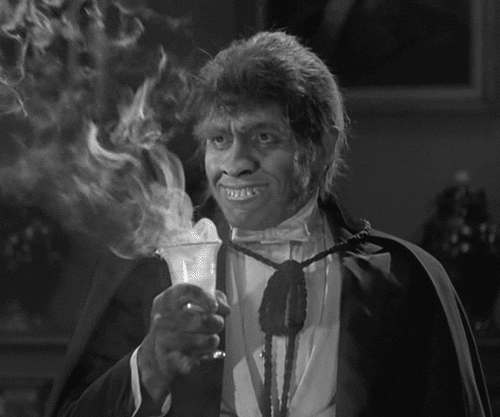
Wide Reading 6 – The Strange Case of Dr Jekyll and Hyde
“The Strange Case of Dr Jekyll and Hyde” is an 1886 famous Gothic novella by Robert Louis Stevenson and centres around a successful doctor by the name of Jekyll and his evil alter ego Hyde. Instigating this strange case of split identity is lawyer Mr Utterson, a friend of Jekyll, who becomes curious about the malicious antics of Hyde and slowly unravels that Jekyll and Hyde share the same body. Towards the end of the novella, Utterson slowly unravels the mystery behind Jekyll’s character and how the character of Hyde hijacks Jekyll’s body and mind and essentially transforms him into a polar opposite version of himself. Henry Jekyll wishes to physically split his personality into a good and bad persona so that he can release his repressed evil urges and sadistic desires when in Hyde’s form without receiving consequences as Jekyll. Jekyll concocts a potion which when consumed, causes him to grotesquely transform into a deformed figure with a devilish countenance and sinister personality which acts as a mask to ‘Hyde’ his identity and evade conviction for his crimes. This evil and lustful nature begin to infect his mind, soul and frame, Hyde’s crimes worsening from trampling a girl to downright brutally murdering his friend without a definitive reason. Slowly but surely, Hyde’s addiction to the potion results in grave consequences, Hyde eventually rising to dominance. Jekyll, fearing that this malevolent manifestation of evil will become his permanent form, decides to commit suicide, gulping down a vile of poison after writing his confessional letter to Utterson. Though the two share the same body, the author, Robert Stevenson portrays them as separate characters with different motives, psyches and appearances. In this essay I will be focussing on Edward Hyde who I believe is the antagonist despite sharing the same body of the protagonist and how he fits two common characteristics of an antagonist: holding supernatural abilities and feeling the need to control. I will investigate how Stevenson effectively applies these characteristics to Hyde, how he implements supernatural elements to the novel and how he comments on the tendency for people to hide their evil side behind the shadow of their good side and the result of this evil side rising to power.
Due to the mysterious and unclear narrative structure of the story, similar to Mr Utterson, I found it hard to understand whether the two are the same character or are separated into two different characters, the protagonist and antagonist. After some thought, and rereading the novella I concluded that despite Utterson being the primary narrator since the plot revolves around Jekyll and his struggles in battling with his evil alter ego he is the protagonist. To explain the character of Jekyll and Hyde I will highlight the similarities between the duo and the Spider-man villain Venom. Both Eddie Brock and Jekyll are essentially possessed by a chemical substance which transforms their entire figure and mentality into a monstrous beast hellbent on destruction. This comparison also highlights the idea of control, the alter egos Venom and Hyde essentially consuming their innocent and right-minded counterparts in an almost supernatural way. Obviously, this is a fictional book and the possibility of manifesting two polar personalities with the sip of a magical potion is near impossible, however, multiple personality disorders do exist and it is possible for an individual to psychologically embody polar personalities without transforming physically like in Stevenson’s novella.
As a result of mental illness, humans can experience an immediate change in character, for example, one character which is evil, self-indulgent and utterly uncaring personality, can take over one’s mind and control or manipulate their perceptions, actions and motives, therefore, there is an element of reality in an otherwise supernatural story. Though the concept of two halves being contained within one being is more explicitly visible in the mentally ill, Utterson’s main objective is to comment on the idea that we are all divided into good and evil. In Jekyll’s confessional letter he states that “… evil besides (which I must still believe to be the lethal side of man) had left on that body an imprint of deformity and decay. And yet when I looked upon that ugly idol in the glass, I was conscious of no repugnance, rather of a leap of welcome.” Jekyll’s statement suggests that we all have a ‘lethal side’ which is waiting to rise to power and overwrite our ‘saintly side’ and that when it does when we are so far gone into the darkness, we will embrace this dark side and ensure chaos on the world. Similarly, the most deadly criminals, after committing a terrible crime will typically have a despicable appearance and unapproachable countenance and will receive similar responses to those who look upon the face of Hyde. Stevenson’s descriptions of Hyde is purposefully upsetting and displeasing to read because he wants to evoke terror in the reader and make them never want to encounter such a fiendish beast in their lifetime. One description which states “I could hear his teeth grate with the convulsive action of his jaws, and his face was so ghastly to see that I grew alarmed…” is one example of Stevenson providing a detailed description of Hyde’s hideous appearance. This description made me visualise a close up of these crooked teeth which are snaggled with his malformed and evil face and sent a shiver down my spine.
Overall, I thoroughly enjoyed reading Stevenson’s famous novella and was highly invested in Hyde’s violent and unhinged character. It made me further understand what it means to be a Gothic antagonist and how their cunning manipulating and controlling nature is able to torment the protagonist. This whole concept of the ‘angel’ vs the ‘fiend’ and the conflict between the two is a common theme in many Gothic literature novels and Stevenson’s characters are certainly the most iconic example of dualism.
